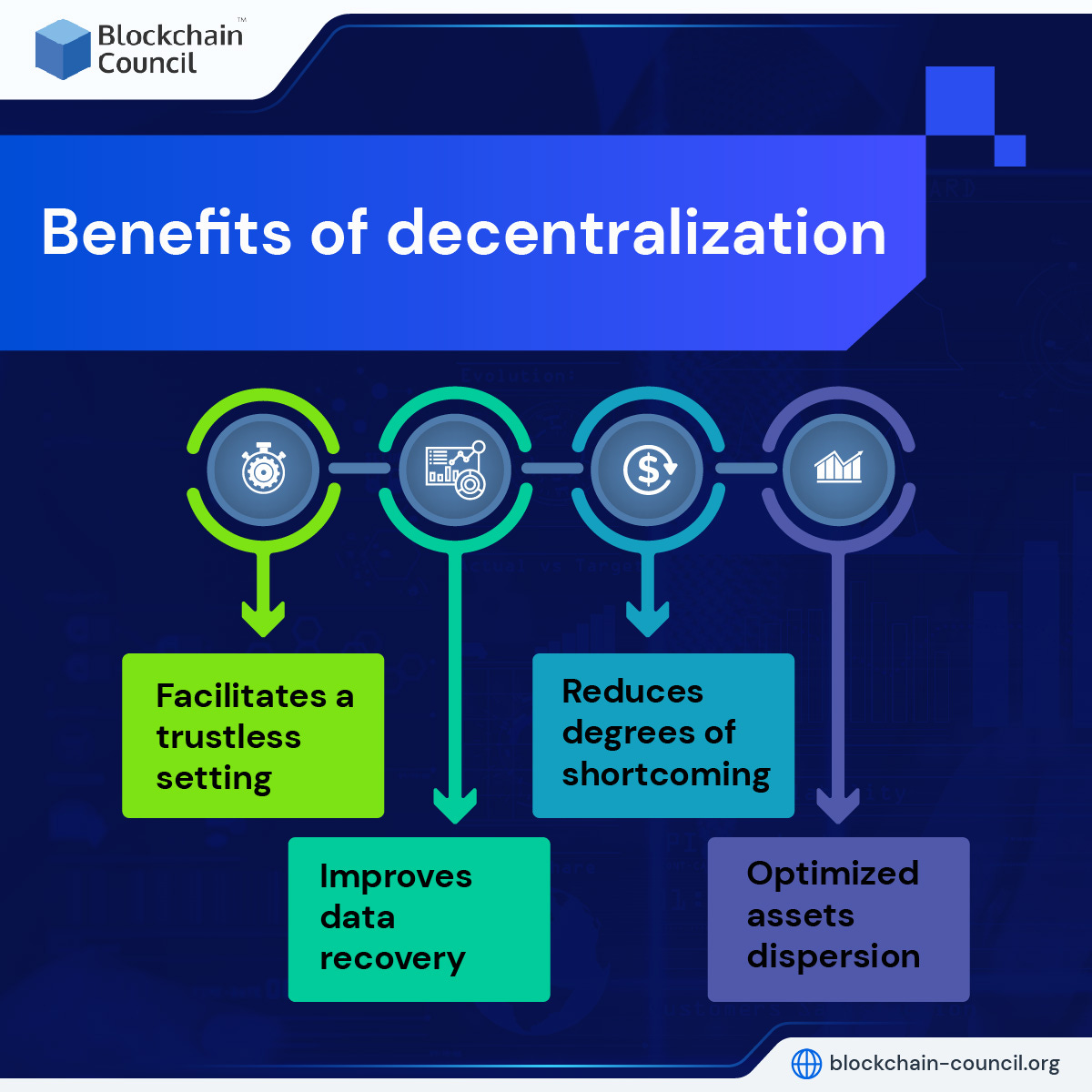Decentralization is an important topic within crypto and blockchain. It’s an important concept to understand so you can speak to it with friends and family who ask you about crypto. I found this great article on it but I’ll simplify it a bit here.
What is decentralization?
Decentralization in blockchain means transferring control from a central authority to a distributed network, reducing the need for trust and preventing concentrated authority. Datafication, or the use of data in the digital realm, heavily relies on technologies like algorithms shaping content on social media. Decentralized systems, like Ethereum blockchain, aim to revolutionize digital currency and identity management. The influence of AI and blockchain is reshaping social interactions, politics, and the economy, leading to an anticipated data revolution akin to the industrial revolution.
Why is decentralization important?
Decentralization varies across blockchain applications and is crucial for achieving fairer and more efficient services. Despite potential drawbacks like slower transactions, the benefits include a trustless setting where every network participant has the same data, improved data recovery, reduced vulnerability, and optimized resource distribution.
Benefits of decentralization:
Facilitates a trustless setting: In a decentralized blockchain, trust in other participants is unnecessary as everyone holds the same distributed record. Any tampered or corrupted data is rejected by the majority in the network.
Improves data recovery: Decentralized data storage ensures that each participant has a timely and shared view of the information, reducing the risk of data loss or inaccuracies.
Reduces degrees of vulnerability: Decentralization minimizes weaknesses in systems that overly rely on specific servers, preventing potential failures, inefficiencies, and fraud.
Optimized resource distribution: Decentralization helps distribute resources efficiently, ensuring consistent and high-performance services with a lower risk of catastrophic failures.
Real world example
Contura Energy, a prominent U.S. coal supplier, has traditionally relied on an outdated letters of credit system for overseeing its international trade payments. Despite the trustworthiness of this system, it is manual, sluggish, and highly inefficient.
Recognizing the significance of digitization and automation in streamlining their letters of credit process, Contura Energy faces the challenge of establishing mutual trust and verification between sellers and buyers. Collaborating with AWS, they are exploring a decentralized, blockchain-based innovation to enhance efficiency, reduce costs, and mitigate risks associated with international trade payments. This solution not only brings about transparency but also provides real-time visibility into data and documentation for all involved parties.
Sources: https://aws.amazon.com/blockchain/decentralization-in-blockchain/
https://www.blockchain-council.org/blockchain/what-is-decentralization-in-blockchain/


